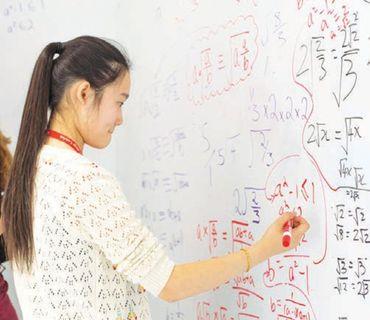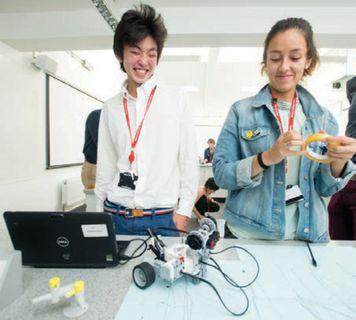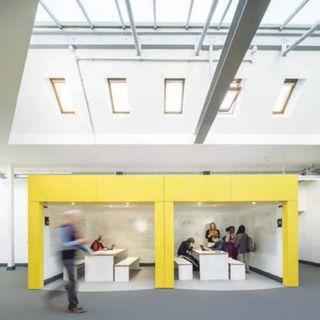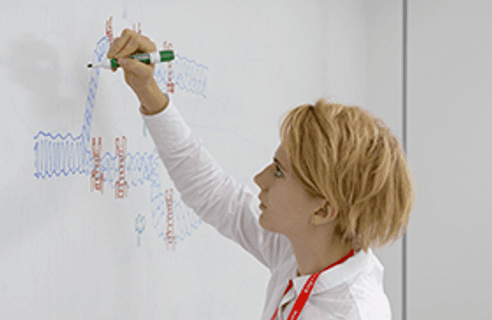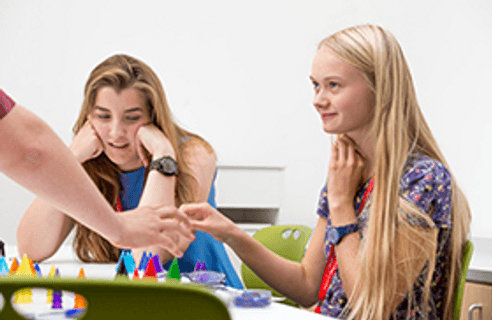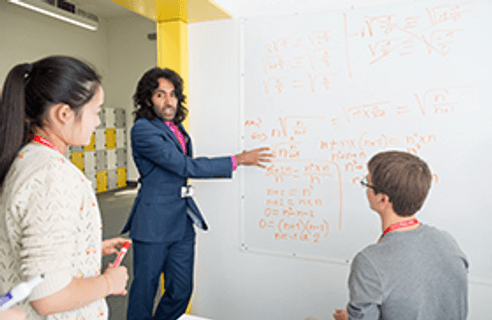Teacher of Mathematics and Economics
King's College London Mathematics School
Lambeth North, Central London
- £29,100 - £39,300 per year
- Expired
- Salary:
- Full-time salary depending on experience
- Job type:
- Part Time, Permanent
- Start date:
- 1 September 2021
- Apply by:
- 21 May 2021
Job overview
King’s College London Mathematics School (KCLMS) is for highly motivated students aged 16-19 with a particular aptitude and enthusiasm for mathematics.
The school is seeking to appoint a dynamic and inspirational teacher who is able to teach both mathematics and economics to our highly motivated students.
Mathematics lies at the core of everything that takes place at King’s College London Mathematics School; it is the passion that unites teachers and students alike, and it represents a way of thinking and creating that empowers and enriches all the different aspects of the school curriculum. Teaching economics at this school is an exciting prospect. Students bring a keen interest in the world around them to their studies alongside fast-paced, insightful thinking and a strong capacity to reason mathematically and deductively.
Whilst the school has many high-attaining students, the mathematics department does not accelerate through A-level material to focus on university level content, but instead teaches in a way that develops effective mathematical thinking. The aim is to provide students with not only a powerful set of tools but also the ability to use those tools flexibly and creatively, and to help them to internalise an understanding of each idea encountered as well as of the connections between those ideas. Using the A-level Mathematics and Further Mathematics as a framework for such developments, students begin to see both what pure mathematics is, and how mathematics can be applied in complex situations where complete solutions may not be possible. The approach taken employs a greater rigour than would usually be expected at this level, with a general supposition that statements are proved and methods justified. In lessons, teachers focus on the use of Socratic questioning to test and develop understanding, on carefully structured problems to provide effective learning experiences for students, and on the frequent use of the whiteboards that surround all of our classrooms to develop a culture of collaborative enterprise.
There is a rare opportunity here for a mathematics teacher with an interest and grounding in economics (or an economics teacher with an interest and grounding in mathematics) to develop their skillset in a new subject area. This post would certainly suit someone who has prior experience of teaching both subjects, but is also available to those who have experience of one and are seeking training and opportunities with the other, both of which the school will provide. The expected split between the teaching load in the two subjects is 30% economics and 70% mathematics.
The mathematics department is highly collaborative: in addition to a weekly department meeting, there are weekly sessions for each of the core, mechanics and statistics sections of the curriculum dedicated to planning. By working together to plan lessons in detail, the department mirrors the lesson study model that research has shown to be so effective. There is an excitement around mathematics beyond the classroom, and this extends to the many individual and team competitions that exist as well as to mathematical talks and activities. Students perform at the highest levels in such competitions, and A level performance is exceptionally high: 94% of A2 grades in Mathematics and Further Mathematics were A or A* grades in August 2019, with value added at +0.9 grades per entry on average across the two subjects. Approximately 50% of all graduating students go on to study mathematics at competitive universities, with Oxford, Cambridge, Warwick and UCL being the most common destinations in recent years.
Attainment in AS Economics is also exceptionally high, with 88% of students in the last few years attaining A grades, and 96% attaining a B grade or better. Each year several students apply successfully to Economics degrees at highly competitive universities.
The successful candidate will have strong academic credentials. They may already have a proven record of outstanding teaching, or they may be new to the profession, in which case they would be supported by the school’s thorough mentoring programme. A vital qualification will be that they share the vision of the school to help young people with a particular aptitude for mathematics find challenge and excitement in a curriculum that fosters intellectual growth and curiosity.
The post will commence from 1 September 2021.
For more details or an application pack, please visit https://www.kingsmathsschool.com/about/jobs
King’s College London Mathematics School is committed to safeguarding and promoting the welfare of students and expects all staff and volunteers to share this commitment. The successful applicant will be required to undertake an Enhanced Disclosure through the DBS.
Closing date for applications: 12pm on Friday 21 April
Interviews will be held on: Thursday 27 May
Attached documents
About King's College London Mathematics School
- King's College London Mathematics School
- 80 Kennington Road, Kennington
- London
- SE11 6NJ
- United Kingdom
King’s College London Mathematics School is a state school for students aged 16-19 with a particular aptitude and enthusiasm for mathematics. It was opened in September 2014 by King’s College London in response to the government’s programme to improve the supply of good mathematicians, engineers, physicists and computer scientists into our best universities, and aims to provide challenging and stimulating teaching by outstanding teachers, especially for students who would otherwise not have access to this quality of teaching. The school is committed to developing well-rounded young people and engages students in a rich extended curriculum that enables their personal development alongside their academic development.
King’s College London Mathematics School’s has 140 students split between year 12 and year 13. There is a selective admissions procedure involving a mathematics aptitude assessment as well as an interview. The process favours candidates for whom the school is likely to make the greatest impact on their futures. The school is based in Lambeth, within walking distance of Lambeth North and Waterloo stations.
Please note that you are wholly responsible for fact checking in respect of the information provided by schools. Please also check for the latest visa and work permit requirements that may apply. Tes is not responsible for the content of advertisements or the policies adopted by advertising schools. Tes asks that all schools follow Tes' Fair Recruitment Policy.


